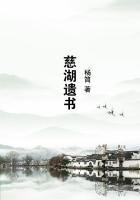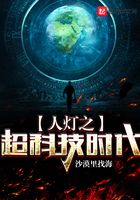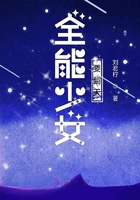I liked it because of my eager and continued interest in the sociological achievements involved. Jeff liked it as he would have liked such a family and such a place anywhere.
Terry did not like it because he found nothing to oppose, to struggle with, to conquer.
"Life is a struggle, has to be," he insisted. "If there is no struggle, there is no life--that's all.""You're talking nonsense--masculine nonsense," the peaceful Jeff replied. He was certainly a warm defender of Herland. "Ants don't raise their myriads by a struggle, do they? Or the bees?""Oh, if you go back to insects--and want to live in an anthill--!
I tell you the higher grades of life are reached only through struggle--combat. There's no Drama here. Look at their plays!
They make me sick."
He rather had us there. The drama of the country was--to our taste--rather flat. You see, they lacked the *** motive and, with it, jealousy. They had no interplay of warring nations, no aristocracy and its ambitions, no wealth and poverty opposition.
I see I have said little about the economics of the place; it should have come before, but I'll go on about the drama now.
They had their own kind. There was a most impressive array of pageantry, of processions, a sort of grand ritual, with their arts and their religion broadly blended. The very babies joined in it.
To see one of their great annual festivals, with the massed and marching stateliness of those great mothers, the young women brave and noble, beautiful and strong; and then the children, taking part as naturally as ours would frolic round a Christmas tree--it was overpowering in the impression of joyous, triumphant life.
They had begun at a period when the drama, the dance, music, religion, and education were all very close together; and instead of developing them in detached lines, they had kept the connection. Let me try again to give, if I can, a faint sense of the difference in the life view--the background and basis on which their culture rested.
Ellador told me a lot about it. She took me to see the children, the growing girls, the special teachers. She picked out books for me to read. She always seemed to understand just what I wanted to know, and how to give it to me.
While Terry and Alima struck sparks and parted--he always madly drawn to her and she to him--she must have been, or she'd never have stood the way he behaved--Ellador and I had already a deep, restful feeling, as if we'd always had one another.
Jeff and Celis were happy; there was no question of that;but it didn't seem to me as if they had the good times we did.
Well, here is the Herland child facing life--as Ellador tried to show it to me. From the first memory, they knew Peace, Beauty, Order, Safety, Love, Wisdom, Justice, Patience, and Plenty.
By "plenty" I mean that the babies grew up in an environment which met their needs, just as young fawns might grow up in dewy forest glades and brook-fed meadows. And they enjoyed it as frankly and utterly as the fawns would.
They found themselves in a big bright lovely world, full of the most interesting and enchanting things to learn about and to do.
The people everywhere were friendly and polite. No Herland child ever met the overbearing rudeness we so commonly show to children. They were People, too, from the first; the most precious part of the nation.
In each step of the rich experience of living, they found the instance they were studying widen out into contact with an endless range of common interests. The things they learned were RELATED, from the first; related to one another, and to the national prosperity.
"It was a butterfly that made me a forester," said Ellador.
"I was about eleven years old, and I found a big purple-and-green butterfly on a low flower. I caught it, very carefully, by the closed wings, as I had been told to do, and carried it to the nearest insect teacher"--I made a note there to ask her what on earth an insect teacher was--"to ask her its name. She took it from me with a little cry of delight. `Oh, you blessed child,' she said. `Do you like obernuts?' Of course I liked obernuts, and said so. It is our best food-nut, you know. `This is a female of the obernut moth,' she told me. `They are almost gone. We have been trying to exterminate them for centuries. If you had not caught this one, it might have laid eggs enough to raise worms enough to destroy thousands of our nut trees--thousands of bushels of nuts--and make years and years of trouble for us.'
"Everybody congratulated me. The children all over the country were told to watch for that moth, if there were any more.
I was shown the history of the creature, and an account of the damage it used to do and of how long and hard our foremothers had worked to save that tree for us. I grew a foot, it seemed to me, and determined then and there to be a forester."This is but an instance; she showed me many. The big difference was that whereas our children grow up in private homes and families, with every effort made to protect and seclude them from a dangerous world, here they grew up in a wide, friendly world, and knew it for theirs, from the first.
Their child-literature was a wonderful thing. I could have spent years following the delicate subtleties, the smooth simplicities with which they had bent that great art to the service of the child mind.
We have two life cycles: the man's and the woman's. To the man there is growth, struggle, conquest, the establishment of his family, and as much further success in gain or ambition as he can achieve.
To the woman, growth, the securing of a husband, the subordinate activities of family life, and afterward such "social" or charitable interests as her position allows.
Here was but one cycle, and that a large one.
The child entered upon a broad open field of life, in which motherhood was the one great personal contribution to the national life, and all the rest the individual share in their common activities.
Every girl I talked to, at any age above babyhood, had her cheerful determination as to what she was going to be when she grew up.













